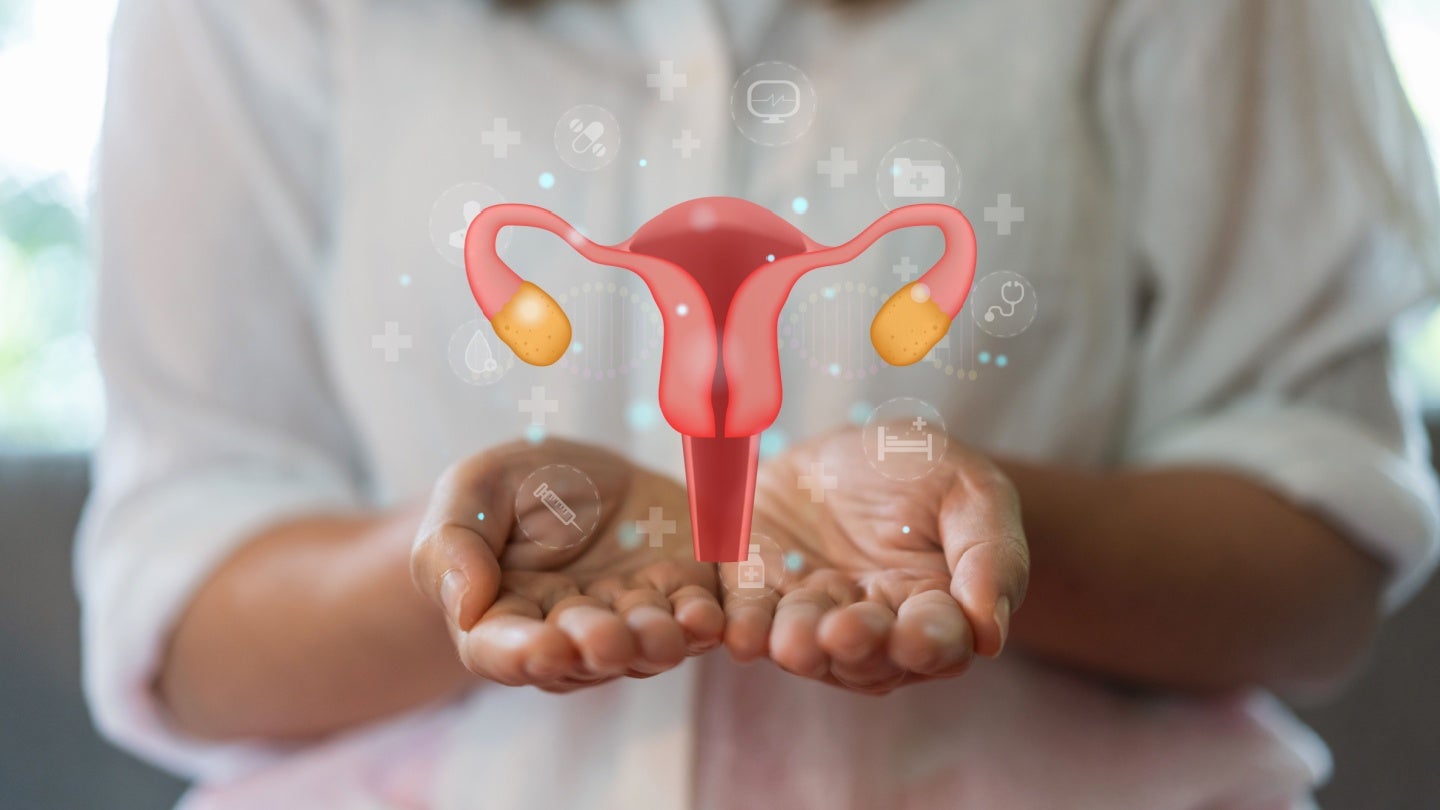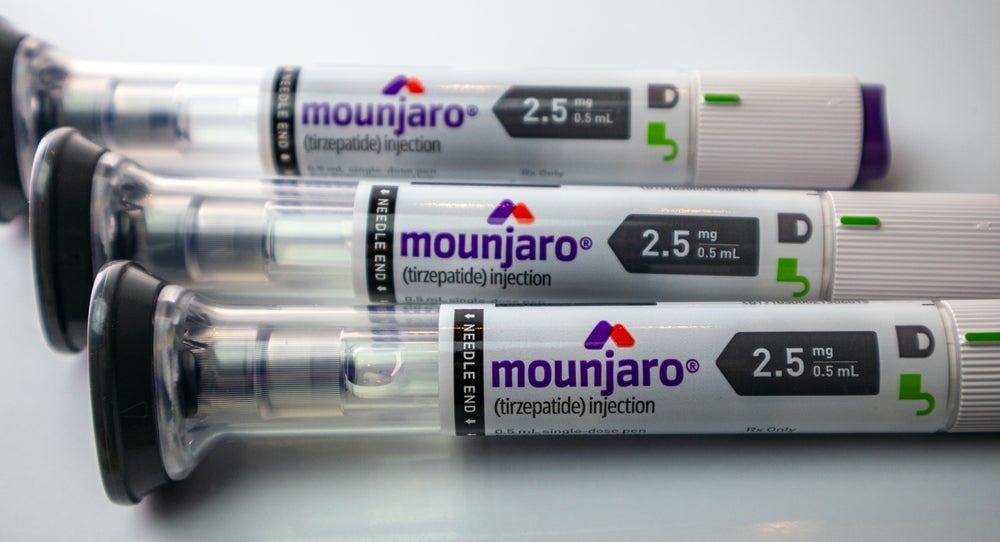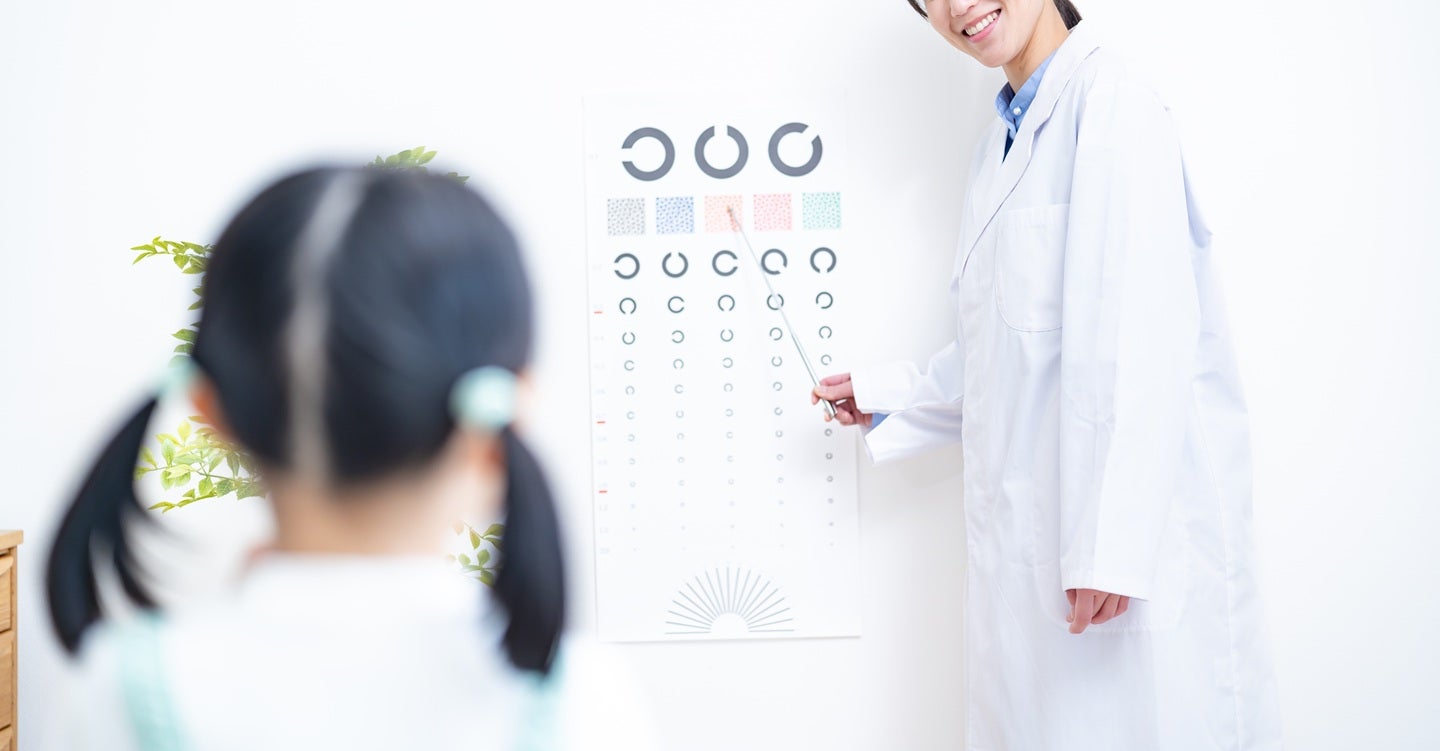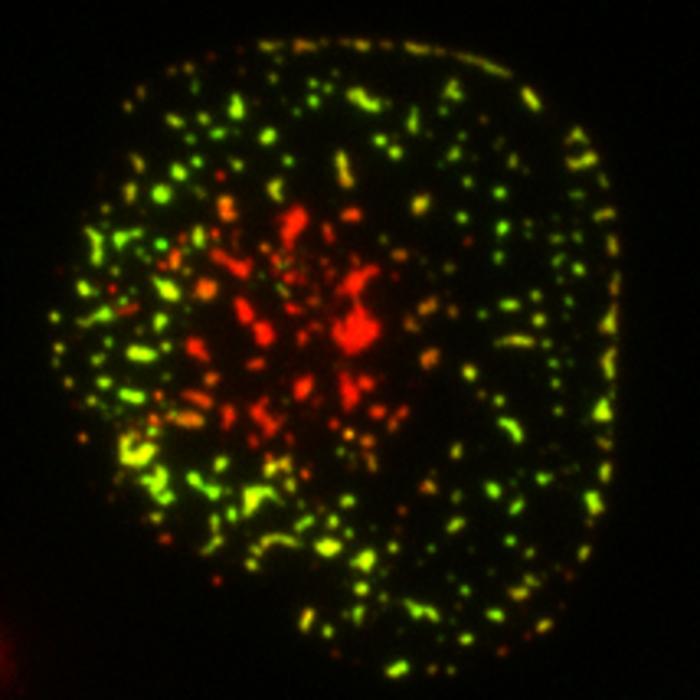Viral defense protein speeds up female stem cell production
Researchers at the Centre for Genomic Regulation (CRG) have discovered a treatment which accelerates the production and quality of pluripotent stem cells in mice. This discovery that has the potential to improve disease modelling and drug testing for individuals with two X chromosomes; women, transgender men or men with an extra X chromosome in Klinefelter […]

Researchers at the Centre for Genomic Regulation (CRG) have discovered a treatment which accelerates the production and quality of pluripotent stem cells in mice. This discovery that has the potential to improve disease modelling and drug testing for individuals with two X chromosomes; women, transgender men or men with an extra X chromosome in Klinefelter Syndrome. The findings are published in the journal Science Advances.

Credit: Mercedes Barrero/Centro de Regulación Genómica
Researchers at the Centre for Genomic Regulation (CRG) have discovered a treatment which accelerates the production and quality of pluripotent stem cells in mice. This discovery that has the potential to improve disease modelling and drug testing for individuals with two X chromosomes; women, transgender men or men with an extra X chromosome in Klinefelter Syndrome. The findings are published in the journal Science Advances.
The research involves induced pluripotent stem cells (iPSCs), which can become any type of cell in the body, making them a highly versatile and valuable resource in research and medicine. They allow scientists to study diseases in the lab and develop personalised treatments. They also have the potential to replace damaged or diseased tissues.
In humans, creating induced pluripotent stem cells involves reprogramming specialised adult cells like skin cells back into a pluripotent state, work that was recognised with a Nobel Prize to the Japanese Researcher Shinya Yamanaka in the year 2012. However, creating stem cells this way is a laborious task, and few cells achieve true pluripotent status.
The researchers discovered that adding interferon gamma (IFNγ) to a culture of mouse neural precursor cells, a type of cell which turns into different types of neurons, cut the time it takes to reprogram iPSCs by one day, saving time and resources.
The finding is surprising because IFNγ is normally known to help the body respond to infections, for example by activating immune cells and promoting inflammation in response to the presence of a virus. It is the first time it has been shown to work in the completely different context of cellular programming.
“Interferon gamma can help cells respond to viral infections by opening up DNA and rapidly activating gene expression. One possible explanation is that, by opening up DNA like a clam, it exposes certain genes, making it easier to reprogram them and accelerating the transformation of the cell into a stem cell,” explains Dr. Mercedes Barrero, first author of the study and researcher at the Centre for Genomic Regulation in Barcelona.
A viral defence protein with the ‘X-Factor’
Many genetic disorders are linked to the X chromosome. Studying female iPSCs, which have two X chromosomes, helps researchers understand these conditions. Female stem cells can also be used in drug testing to ensure therapeutic molecules are effective and safe for individuals of different genders by understanding how they interact with female cells.
Female iPSCs can also be used to create more accurate models for diseases that disproportionately affect women, or eventually, be used to grow tissues and organs for transplantation which specifically address the needs of female patients. However, creating high quality female stem cell lines has been historically challenging.
This is because female adult cells usually have one X chromosome dormant, a compensation mechanism which helps avoid the effects of a double dose of gene products from both X chromosomes being active. Male cells with XY chromosomes don’t have to deal with this problem.
Activating both X chromosomes during cellular reprogramming is usually a hallmark of high-quality stem cells. It means a cell has been thoroughly reprogrammed, shed its previous identity and gained the potential to become any cell type, essentially mimicking cells in early embryonic stages.
The researchers found that interferon gamma (IFNγ) was highly effective at accelerating the reactivation of the X chromosome, speeding up the generation of high-quality iPSCs.
“Adding interferon gamma made X-chromosome reactivation twice as efficient early in the reprogramming process in mouse cells. While the resulting iPSCs were the same quality, we suspect it’s likely to be different in human stem cells, and the viral defence protein is likely to be an important player in improving the quality of human female stem cell lines,” says Dr. Bernhard Payer, senior author of the study and researcher at the Centre for Genomic Regulation in Barcelona.
“Personalized medicine for women demands high-quality female stem cell lines. Without these, experimental therapies might fail. Our findings are one step forward in enabling the production of high-quality female iPSCs, which are vital to ensure the promise of personalised medicine benefit all, not just the few,” concludes Dr. Payer.
Journal
Science Advances
DOI
10.1126/sciadv.adj8862
Method of Research
Experimental study
Subject of Research
Animals
Article Title
The Interferon γ Pathway Enhances Pluripotency and X-Chromosome Reactivation in iPSC Reprogramming
Article Publication Date
7-Aug-2024
What's Your Reaction?


































